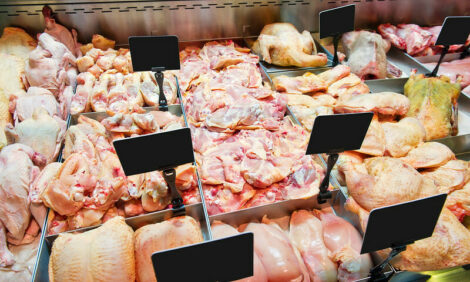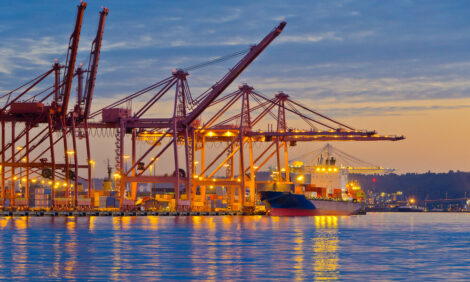



Poland-Ukraine government talks set for March 28
Farmer protests persistPoland's prime minister said on Thursday the Polish and Ukrainian governments would meet in Warsaw on March 28, but did not accept a request by Ukraine's president for urgent talks on border blockades by Polish farmers, reported Reuters.
President Volodymyr Zelenskiy called on Wednesday for Polish Prime Minister Donald Tusk, Polish President Andrzej Duda and European Union officials to come to the Ukrainian-Polish border to discuss the protests by the farmers, who are angry over what they say is unfair competition from cheaper Ukrainian imports.
Zelenskiy made clear he wanted talks before Saturday's second anniversary of Russia's invasion of Ukraine.
"I have agreed with the prime minister of Ukraine for a meeting between the two governments, which will take place in Warsaw on March 28, and I hope that by then technical talks will lead to a fruitful meeting," Tusk told a press conference.
Asked by a reporter whether this meant he was not going to the border for talks, Tusk said he believed he had made himself clear. He offered no direct comment on Zelenskiy's proposal.
Zelenskiy, in his nightly video message, did not refer directly to Tusk's statement, but said he had raised his proposal for an urgent meeting during a telephone conversation with European Council President Charles Michel.
"The situation on the border with Poland is absolutely unacceptable. I advised (Michel) about our Ukrainian initiative for an immediate meeting at the border involving representatives of Ukraine, Poland and the European Commission," Zelenskiy said.
"Negotiations are necessary and Ukraine's proposals are quite specific."
In his remarks, Tusk reiterated his support for Kyiv's war effort and said Poland would include border crossings with Ukraine and certain sections of roads on a list of critical infrastructure to "ensure a 100% guarantee that military aid ... reaches the Ukrainian side without delays".
Foreign minister in Warsaw
Ukraine's Foreign Minister, Dmytro Kuleba, also made no reference to Tusk's remarks about the March meeting, but said he had held talks with Polish officials in Warsaw on Thursday.
"Both governments are aiming to resolve problematic issues," Kuleba said on the social media platform X, where he also thanked Tusk for his efforts to ensure unhindered deliveries of military aid to Ukraine.
Ukrainian Deputy Prime Minister Oleksandr Kubrakov told Ukrainska Pravda media outlet that Kyiv was ready for "any format" of talks to help end the border blockades.
Polish President Andrzej Duda said he believed farmers were right to protest as they are fighting for their livelihood.
"This is a European problem and this problem should be solved by the European Commission," he told private broadcaster Polsat News. However, he added that Tusk's government is considering different scenarios.
"The government is considering various things, including, one of the elements we discussed was even closing the border ... of course while ensuring the possibility of providing military and humanitarian supplies for Ukraine."
Polish farmers have broad public support for their protests over high costs, cheap food imports and EU climate policies. This leaves Tusk with a difficult balancing act as he tries to maintain Warsaw's staunch support for Kyiv in its fight against Russian invaders while addressing the farmers' grievances.
Kyiv has said the protests, which have included blockades of border crossings, are damaging its fight to repel Russia.
Farmers continued to demonstrate across Poland on Thursday, but on a smaller scale than on Tuesday.
Adrian Wawrzyniak, a spokesperson for the Solidarity farmers' union, said protesters were blocking three crossings with Ukraine although some trucks were being let through. He also said a bridge linking Poland to the Czech Republic was being blocked, as were several roads around the country.
Farmers from the Czech Republic and other central European countries also protested on Thursday along Czech borders, blocking some crossings as they demanded changes to EU policies.



